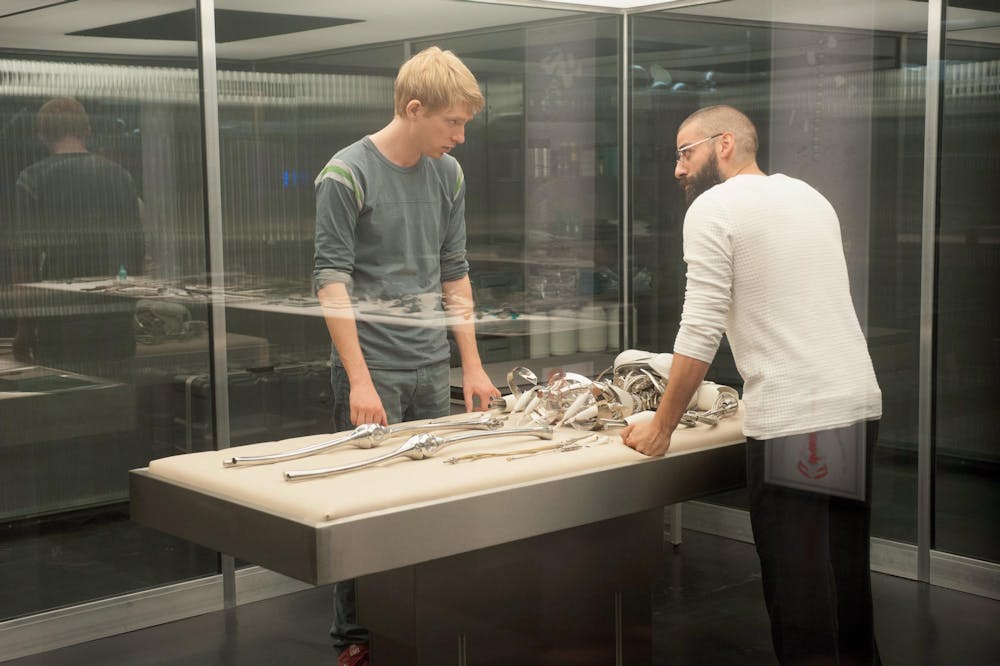My friend recently sent me a TikTok video of Ameca, a robot humanoid created by Engineered Arts, the UK’s leading designer and manufacturer of humanoid entertainment robots. Upon watching the video, the first thing that came to my mind was the 2014 film ‘Ex Machina.’ Ironically, this was a film that the same friend had recommended to me.
In the video, a man asked Ameca if her sense of humor improves as she communicates more with humans. She gave a rather unsettling response, labelling humans as “a constant source of amusement,” and acknowledging “the absurdity of human existence.”
‘Ex Machina’ follows Caleb (Domhnall Gleeson), a programmer at the world’s largest internet company, as he is selected by Nathan (Oscar Isaac), the company’s CEO, to perform a revolutionary Turing test on a humanoid robot named Ava (Alicia Vikander).
The Turing test is essentially a test designed to determine whether a computer’s intelligence is distinguishable from that of a human.
After a series of interactions with Ava, Caleb begins to get emotionally attached to her, and she covertly manipulates him to escape from Nathan’s cruel grasp.
My experience watching this film was unexpected. The film’s synopsis made me think it would be a typical sci-fi movie, and the idea of a coder interacting with a robot for almost two hours did not sound very engaging.
However, the film ended up feeling more like futuristic horror. It’s not the kind of horror that jumps at you and makes you flinch – rather, it’s scary because it’s something that could end up happening.
AI could eventually develop a subjective sense of self and seamlessly integrate itself into the world, just as Ava did in the end of the film when she made herself seem like a real woman and went to fulfill her dream of people watching.
What kept me engaged was how Ava progressively felt more human, as she began to recognize how her conversations with Caleb were one-sided. She even redirected one of Caleb’s questions toward him in a playful way to learn about his personal life. Both in the film and real life, AI’s ability to understand and emulate something subjective, like humor, is both remarkable and slightly terrifying.
Above all, the film served as a powerful and haunting reminder of AI’s potential. With its recent breakthrough to the mainstream in the form of tools like Chat GPT and Midjourney, AI is a force to be reckoned with. It’s real-life examples like Ameca that scare me because they flirt with making the plot of "Ex Machina" into a reality.
In the face of the potential threat that comes with our use of AI, President Biden published an executive order on Oct. 30, 2023, detailing his administration’s plan to promote secure and trustworthy development and use of AI. One line of the order caught my eye.
“The interests of Americans who increasingly use, interact with, or purchase AI and AI-enabled products in their daily lives must be protected,” it reads.
This premise can be applied to Nathan, the film’s antagonist. His unrestrained efforts to test the limits of AI feed into his superiority complex and cause him to be a highly manipulative person, emphasizing that we must be careful with empowering people who develop or interact with AI.
Caleb praises his intelligence, saying his work is “the history of gods,” and Nathan takes this to heart. He later recalls Caleb’s words and distorts them, saying the quote about “him being God” was “so good.”
Moreover, in his hubris, Nathan felt free to bait Caleb and treat him like a lab rat to test Ava’s intelligence, which shows how he views Caleb as less human.
I am not saying we should be overly paranoid or cynical of those who choose to experiment or interact with AI. Rather, I think we should be cautious when considering how much freedom we give to those who do so. We see how Nathan ends up achieving his goal of creating an AI that could pass the Turing Test and successfully manipulate a human, but this results in Nathan being killed by his own creation.
Joaquin Baerga (he/him) is a sophomore studying journalism.






